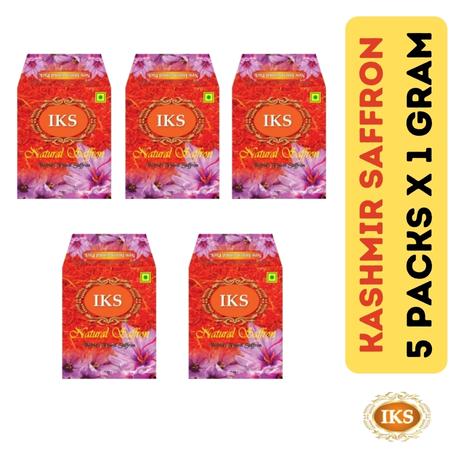Is Saffron Good for Dopamine?: Uncovering the Powerful Connection
Is Saffron Good for Dopamine?: Uncovering the Powerful Connection
Is Saffron Good for Dopamine – In recent years, there has been growing interest in the potential benefits of saffron for regulating dopamine, a crucial neurotransmitter that plays a vital role in various aspects of human health and well-being.
Saffron, the vibrant and aromatic spice derived from the Crocus sativus flower, has long been revered for its medicinal properties, and emerging research suggests that it may have a positive impact on dopamine regulation.
This article will explore the role of dopamine in health and well-being, the potential benefits of saffron for dopamine, and the mechanisms by which saffron may influence this important neurotransmitter.
🌟 Unlock the Dopamine-Boosting Power of Saffron – Shop Now!
Understanding Dopamine – Benefits of saffron for neurotransmitter balance
Dopamine is a neurotransmitter that is responsible for regulating a wide range of physiological and psychological processes, including mood, motivation, reward-seeking behavior, and cognitive function.
It is often referred to as the “feel-good” chemical because it is associated with pleasurable experiences and positive emotions.
Dopamine is produced in the brain’s midbrain region, specifically in the substantia nigra and ventral tegmental area. It is then released into various parts of the brain, where it binds to specialized receptors and triggers a cascade of neural events that influence behavior, cognition, and emotional responses.
The Role of Dopamine in Health and Well-being
Dopamine plays a crucial role in maintaining a healthy balance of mood, motivation, and cognitive function. Imbalances in dopamine levels have been linked to various neurological and psychiatric conditions, including:
- Depression: Reduced dopamine levels have been associated with symptoms of depression, such as low mood, lack of motivation, and anhedonia (the inability to experience pleasure).
- Attention Deficit Hyperactivity Disorder (ADHD): Individuals with ADHD often exhibit dysregulation of dopamine, which can contribute to difficulties with attention, hyperactivity, and impulsivity.
- Parkinson’s Disease: The progressive loss of dopamine-producing neurons in the substantia nigra is a hallmark of Parkinson’s disease, leading to motor symptoms such as tremors, rigidity, and slow movement.
- Addiction: Drugs and other substances that trigger the release of dopamine in the brain’s reward system can lead to the development of addictive behaviors, as individuals seek to recreate the pleasurable feelings associated with dopamine release.
💫 Elevate Your Mood and Focus with Saffron – Discover More
The Potential Benefits of Saffron for Dopamine
Emerging research suggests that saffron may have a positive impact on dopamine regulation, making it a potential natural intervention for various health conditions related to dopamine imbalances.
Antidepressant Effects – Saffron for improving mental well-being and dopamine
Several studies have investigated the use of saffron as a natural treatment for depression. Saffron has been shown to have antidepressant-like effects, potentially by modulating dopamine levels in the brain.
A systematic review and meta-analysis of multiple clinical trials found that zaffran supplementation was more effective than placebo in reducing symptoms of depression, with a similar efficacy to conventional antidepressant medications.
Neuroprotective Properties – Enhancing dopamine function with saffron
Saffron has also been studied for its neuroprotective properties, which may be relevant for conditions such as Parkinson’s disease. Some research suggests that saffron may help protect dopamine-producing neurons, potentially slowing the progression of neurodegenerative diseases.
This neuroprotective effect may be attributed to saffron’s ability to reduce oxidative stress and inflammation, which are known contributors to neuronal damage.
Cognitive Enhancement – Saffron’s impact on dopamine levels
Saffron has been explored for its potential to enhance cognitive function, which may be related to its influence on dopamine levels.
Studies have shown that saffron supplementation can improve memory, attention, and other cognitive abilities in both healthy individuals and those with mild cognitive impairment.
Addiction and Substance Abuse – Saffron’s effect on dopamine-related conditions
Preliminary research indicates that saffron may have a role to play in the management of addiction and substance abuse.
Some studies have suggested that saffron may help reduce cravings and withdrawal symptoms associated with drug and alcohol dependence, potentially by modulating the dopamine reward system.
🌈 Experience the Dopamine-Regulating Benefits of Saffron – Buy Now
Mechanisms of Action
The mechanisms by which saffron may influence dopamine levels and function are not yet fully understood, but several potential pathways have been identified:
- Antioxidant and Anti-inflammatory Properties: Saffron and its active compounds, such as crocin and safranal, have been shown to possess potent antioxidant and anti-inflammatory properties. By reducing oxidative stress and inflammation, saffron may help protect dopamine-producing neurons and maintain healthy dopamine levels.
- Monoamine Oxidase Inhibition: Saffron has been found to inhibit the activity of monoamine oxidase, an enzyme responsible for the breakdown of neurotransmitters like dopamine. By inhibiting this enzyme, saffron may help increase the availability of dopamine in the brain.
- Modulation of Dopamine Receptors: Some studies suggest that saffron may influence the expression and function of dopamine receptors, potentially enhancing the sensitivity of these receptors to dopamine and improving the overall dopaminergic signaling in the brain.
- Regulation of Dopamine Synthesis: Saffron may also play a role in the regulation of dopamine synthesis, potentially by affecting the activity of enzymes involved in the production of this neurotransmitter.
Dosage and Safety Considerations
While saffron is generally considered safe when consumed in food quantities, it is important to note that the optimal dosage for its potential effects on dopamine regulation has not been firmly established.
Most studies have used saffron in the range of 5 to 7 threads per day, but individual responses may vary. It is crucial to consult with a healthcare professional before incorporating saffron or any other supplement into your routine, especially if you have any underlying medical conditions or are taking medication.
Saffron may interact with certain medications, and its safety during pregnancy and breastfeeding has not been conclusively determined.
5 GRAMS 100% PURE ORIGINAL AUTHENTIC PREMIUM TOP BEST HIGH QUALITY A+++ GRADE IKS KASHMIRI SAFFRON (KESAR / KUMKUMA PUVVU / KUNGUMAPOO / KUMKUMPUVVU / ZAFFRAN) FOR DOPAMINE
Conclusion – Exploring saffron’s contribution to dopamine synthesis
The potential benefits of saffron for dopamine regulation are an exciting area of research, with promising findings suggesting that this ancient spice may have a role to play in the management of various neurological and psychiatric conditions.
However, more extensive research is still needed to fully understand the mechanisms by which saffron influences dopamine and to establish clear guidelines for its safe and effective use. As with any natural or dietary supplement, it is important to approach the use of saffron with caution and to work closely with a healthcare professional to determine the best course of action for your individual needs.
By leveraging the power of saffron and other natural compounds, we may be able to find new and innovative ways to support optimal dopamine function and overall well-being.
🌟 Elevate Your Mood and Focus with the Magic of Saffron – Shop Saffron Now








Leave a Reply
Want to join the discussion?Feel free to contribute!